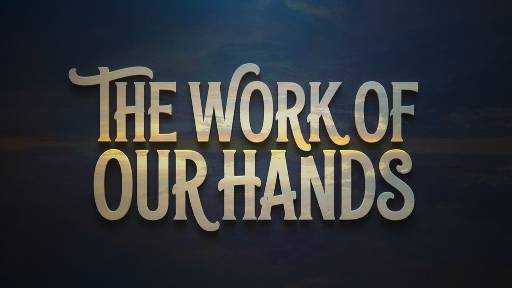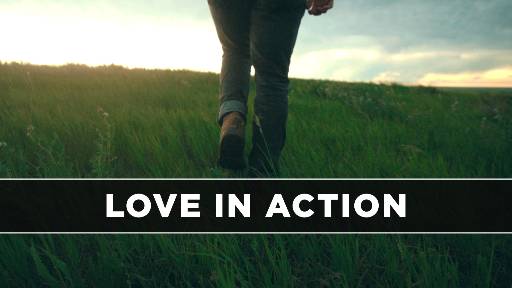-
Me? A Priest? Series
Contributed by Vic Folkert on Oct 3, 2018 (message contributor)
Summary: Being a priest is an AWESOME PRIVILEGE and AWESOME RESPONSIBILITY. Leviticus 8-10 is the ordination of Aaron and the death of Nabab and Abihu. In the NT, we are all priests!
Me? A Priest? Selections from Leviticus 8-10
My wife’s grandmother was a woman who always spoke her mind. When my then-fiancee told her grandmother that she was going to marry a minister, the crusty old woman said, “Marry a priest? I wouldn’t do that! You can do that if you want, but I would never do that.”
I hate to tell you, Grandma, but all Christians are priests!
The role of a priest is to make a connection between God and people. In the Old Testament, priests offered sacrifices, on behalf of the people. In the New Testament, a priest is anyone who connects people to God. As the Apostle Paul said in Romans 15:16, “[God] gave me the priestly duty of proclaiming the gospel of God, so that the Gentiles might become an offering acceptable to God, sanctified by the Holy Spirit.” Peter said the same thing: “You are a chosen people, a royal priesthood, a holy nation, God’s special possession, that you may declare the praises of him who called you out of darkness into his wonderful light.” (1 Peter 2:9)
You are a priest! You are a priest to your family, as they may be to you. You are a priest to people who do not know God and his grace. You are a priest to friends, as you share the love of God, a word from the Lord, a prayer of intercession, or the presence of Christ in a time of need.
Being a priest of the true God is an AWESOME PRIVILEGE and AWESOME RESPONSIBILITY. As someone has said, “In the end, all that matters is God, humanity, and bringing the two together. That is what a priest does, and that is what we are privileged and responsible to do.
Old Testament priests provide a picture of the awesomeness of our privilege and responsibility, as priests who bring God and people together.
The backstory of the Book of Leviticus is that the Israelites have come out of Egypt, where they were slaves to the Egyptians. In Egypt, people worshipped the sun, the moon, and animals. The Israelites were headed for the land of Canaan, where worship might involve everything from goat idols to drunken orgies, ritual prostitution, or child sacrifice. God will have none of that!
God does not leave worship to the creativity of Moses and the people; he tell them exactly how they should come before him. In chapters 1-7, he gives detailed instructions for several different kinds of offerings. Now, in chapters 8-10, he gives instructions for how priests are chosen and set apart to connect people with God.
Imagine the scene, as we read Leviticus 8:1-24.
What an AMAZING PRIVILEGE for Aaron, the high priest, and his four sons. Aaron is dressed in majestic garments, with “bling” from head to toe. Everything about his outfit represents his role in bringing the people into the presence of the God who has chosen and redeemed them. Aaron connects people to God!
Yet as Moses dresses Aaron, Aaron is also humbled. He is dirty, so he has to be washed. He needs clean underwear, underneath his elaborate robes. He needs to lay his hands upon the head of a bull, symbolically laying his sins upon the animal. The bull is then killed, as an offering for his sin, and the sin of his sons. Then two rams are killed, and Aaron is touched from head to toe in the blood of the sacrifice God commands.
After all that, Aaron and his sons must spend seven days at the entrance to the Tent of Meeting, the place where God meets his people. This is not optional; if they leave there, they will die. Connecting God and people is an awesome privilege—and it must never be taken lightly.
On the eighth day, Aaron and his four sons are finally ordained as priests. There is another sin offering, another burnt offering, and a fellowship offering. Sin is atoned for, the aroma of the offering is pleasing to God, and the priests and the people have fellowship with God.
Then an amazing thing happens: (Read Leviticus 9:22-24.)
I don’t suppose anything like that has ever happened to you!
Do we ever see the glory of God? Yes, for the greater glory of God is not in fire and smoke, but reflected in God’s saints. Paul says in 2 Corinthians 3:18, “We all, who with unveiled faces contemplate the Lord’s glory, are being transformed into his image with ever-increasing glory, which comes from the Lord, who is the Spirit.”
When a priest brings people into the presence of God, glory is revealed:
You sit with a person who is hurting, or ashamed, or lost, and you share God’s words of forgiveness and acceptance.
You bring an offering of music and praise to the Lord, others join in the offering, and the Lord is pleased by the offering.

 Sermon Central
Sermon Central


